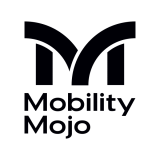Whether you’re in the Netherlands or Belgium both countries have very similar traditions and customs, the weather is practically the same and they look very alike. The languages spoken In both countries are similar – but not exactly the same. Dutch and Flemish dialects have some obvious and some subtle differences which would be difficult for a newcomer or non-native speaker to identify. Antwerp is close to the Netherlands’ border, and we get many Dutch guests in PREMIER SUITES Antwerp. Book your stay in Antwerp to experience different dialects for yourself and see if you could pass for a native Flemish speaker!
Are Dutch and Flemish the same language?
The short answer to this is yes but with some differences. In both the Netherlands and in Flanders they speak the same language, Dutch. Great news for Dutch speakers and learners of our lovely language. In Belgium, three main languages are spoken, French, Dutch and German. Antwerp is located in the Flemish part of Belgium, where Dutch is the mother tongue. In the Southern part called Wallonia, French is the standard and there is also a German-speaking area which is much smaller. The language taught in schools depends on the region and population, but you’ll often find people who can hold a conversation in all three languages. You’ll find street signs in multiple languages and locals are usually happy to attempt to communicate with you in your language of choice.
What’s the difference between Dutch and Flemish
The history and the dominant religion are different in the Netherlands and Belgium, meaning that the language developed differently. The Dutch dialect spoken in the Netherlands has an English influence while the language in the Flanders region has a stronger French influence. The accent and pressure put on certain parts of words differs depending on what part of the border cities you’re in. Dutch people mention that the Flemish dialect sounds softer and more romantic like French. Generally, the Dutch language is understandable no matter where you are if you listen carefully enough. Flemish are famous for being more language purists than the Dutch, which is often a point of contention between the countries.
Pronunciation Differences
There are some obvious differences between Dutch and Flemish, things that sound similar to the untrained ear. Interesting differences can be found in the world order of certain expressions. For example, the Dutch say vast en zeker (surely!), while in Flanders zeker en vast is more common. In Flanders, when asking for an ATM, Flemish speakers would ask for a ‘bankcontact’, whereas in the Netherlands you’ll more likely hear the phrase ‘pinautomaat’.
The biggest difference you’ll notice, which will become obvious if you have been studying Dutch for a while, is the pronunciation. The way the Flemish mouth certain words can be described as softer and more friendly. In Southern parts of the Netherlands. The Flemish have a “soft G’ while in the northern parts of the country, they pronounce a ‘hard G, produced in the throat. The hard G sound is commonly heard around Amsterdam and Rotterdam.
Many words that are used commonly in Belgium are unheard of in The Netherlands and vice versa. For example, you won’t encounter words like goesting (zin), kot (kamer) and amai (exclamation of surprise) in the Netherlands but they’re everyday phrases in Belgium. Sometimes the neighbouring countries use them differently or to evoke different meanings. Different regions have slang for different words and phrases, common in most countries.
An important difference between Flemish and Netherlands Dutch is the use of pronouns. It’s often the first thing you’ll notice when trying to decipher where a person is from. In Flanders and the southern parts of the Netherlands, you’ll hear “uw” instead of “jouw” and “je” and “jij” often turn into “ge” and “gij”.
If you want to practice your different dialects, or just explore culture, fashion and fun in Antwerp, PREMIER SUITES offers serviced apartment accommodation in the heart of the city. Many of our team also speak fluent English so it’s easy for us to communicate with most guests. Book our best available rates exclusively on our website and explore Antwerp like a local, no matter your dialect or mother tongue!








